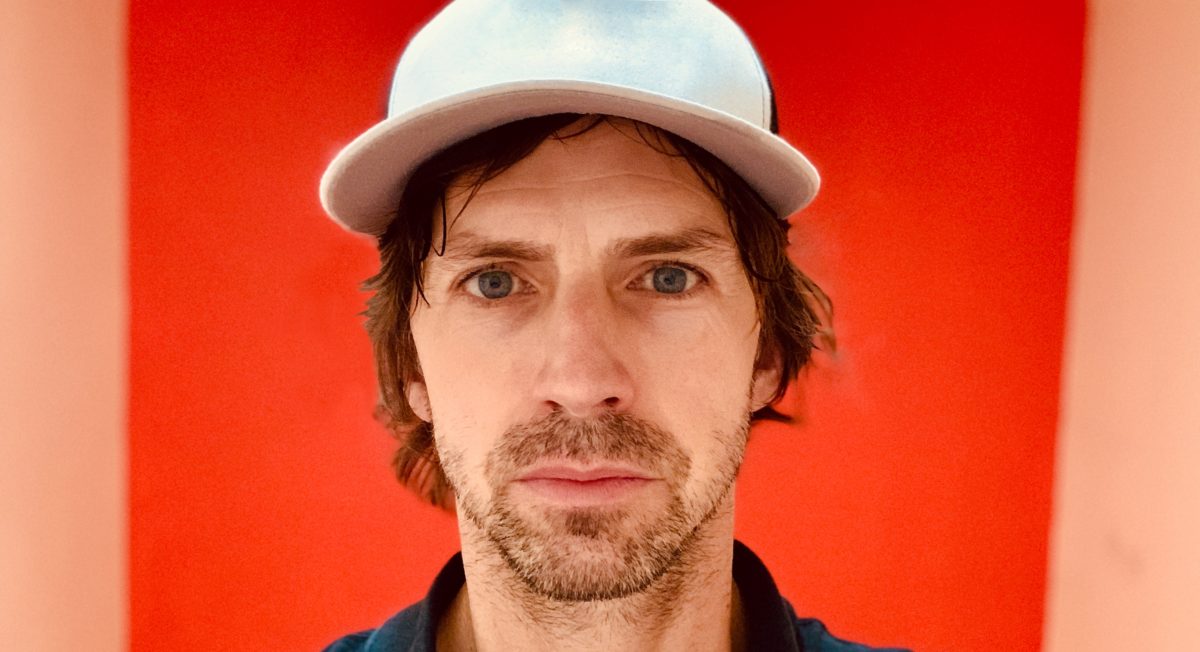“Brainy guitar pop that juxtaposes anxious, postpunk-infused rock with crisp atmospheric textures to fascinating results.”
– Entertainment Weekly
On Fast We Fall, the new LP from Trumpeter Swan, songwriter and multi-instrumentalist Drew Patrizi delivers a slate of immediately engaging, immaculately layered indie rock full of nuance and clever melodic construct. The record’s urgent, crackling energy contrasts a pervasive sense of world-weariness (who isn’t a bit frayed in 2022?). This disparity is echoed by post-punk angularity juxtaposed against lush modular-synth saturation. While this is not a concept record, the connective tissue amongst the songs questions the narratives we tell ourselves; both in personal relationships and as Americans. It asks how we cope with the “fall from grace” reality when those narratives crumble, without providing an easy solution. Timely, indeed.
Founded by Patrizi, who gained recognition as a founding member of the critically acclaimed Austin, Texas-based, indie rock band What Made Milwaukee Famous (Barsuk Records), Trumpeter Swan self-released debut Listen for the Clues in 2010 shortly after relocating to New York. The sophomore release The Magnitude of Now (2013) continued to explore and expand on “heavy things” disguised as mellifluous pop songs, testing the point at which exuberance and uncertainty intersect.
Following the release of The Magnitude of Now, which included a trip to Austin to play SXSW, Patrizi continued to live in New York and chipped away at writing and recording, while juggling work and new parent duties. He was also simultaneously trying to process the turbulent cultural and political events unfolding. “I find it impossible to ignore those themes,” Patrizi interjects. “They demand a response.” Throughout this time, he was constantly working on new material, compiling melodies, song fragments, riffs and lyrics, and demoing songs. The realities called for the “slow and steady wins the race, er, marathon” approach, recording new songs in fits and starts. “As much as I would have loved to make things go faster, my “process” was both deliberative and discontinuous” he explains.
While forays into studios did occur, much of the groundwork for the record came about on the subway during his commute or on the walk home. “I would get a melody in my head and race home to record it – or just sing it into my phone. I can remember many nights when I would say to myself – “okay, now I can work on music” – and then sitting down to write or record only to fall asleep face down on my desk” he tells. “I joke about waking up drooling on the keyboard, but that actually happened numerous times and it’s a pretty apropos snapshot for that phase of my life.”
Fast forward to present day, after a nomadic pandemic adventure living in three states, Patrizi and his family have recently moved back to Austin. Creatively, the return to his roots gave him both more headspace and physical space to work on music, and a reconnection with the Austin music community from which his career was born. “Leaving New York was bittersweet, but it’s great to be back in Austin and I’m getting to experience it in new ways—it definitely feels like a new chapter” says Patrizi. “It’s also a little disorienting. There is this strange Back to the Future quality to the experience, except when I traveled back in time to the setting of my life when I was single and living in Austin in my 20s, some parts are so familiar yet so much had changed. Landmarks have been transformed. Everyone is older. Also, there’s a hell of a lot of Tesla’s everywhere and not one single DeLorean. Maybe I actually traveled into…the future?? My brain is constantly trying to recalibrate—there’s probably a song in there somewhere.”
Thematically, the title Fast We Fall reflects the multiple layers of meaning stitched through the record. The fragility of relationships. The fragility of democracy. The fragility of…everything really. It is an album that documents the shared experience of getting older and glancing up at the rear-view mirror from time to time, trying to take stock of relationships that still mystify. It’s also a reflection of a troubled country during a moment of reckoning.
Patrizi elaborates, “‘Elections have consequences’ as the saying goes, and now those consequences are playing out in real time. There’s a feeling of ‘I’ve seen the end of this movie and it does not end well.’ Is this it? Is this as good as it gets? Because I was hoping there was more.” The songs grapple with how to confront and understand both of these realities. Title track “Fast We Fall” underscores this sentiment “when the wolves are hatred are released / when the righteous scale the walls / how far we’ve come / how fast we fall.”
“I think a lot about what America means today, what it stands for,” Patrizi reflects. “For a while during the pandemic I lived in Connecticut down the road from the legendary artist/painter Jasper Johns. I would walk by his house hoping to catch him on a winter stroll, and just in case, I had my Jasper Johns questions prepared: ‘If you painted the American flag today, what would it look like? What colors would you use? Does it inspire you in the same way as when you first painted it?’ I never got to have the conversation with him, but I did have it with myself.”
Fast We Fall was recorded in Brooklyn, NY at The Creamery with Quinn McCarthy (Antibalas, Sleigh Bells) and at Good Danny’s with Danny Reisch (Wye Oak, St. Vincent)—both longtime friends and collaborators —with additional tracking at Patrizi’s home. In addition to Patrizi on vocals, guitar, piano, and keyboard, the record features McCarthy on bass, and Reisch and Brad Wentworth (Howie Day) on drums. Sam Howden (Soul Food Horns) played trumpet and flugelhorn. Mixing duties were split between Reisch, McCarthy and Alex Lipsen (Phosphorescent, Santigold) of Headgear Recording.
The chorus of lead single “American Dream” rings out “In the home of the brave, in the land of the free / still searching for the American Dream / ‘cause we’ve still got hearts that bleed / we’re all gonna need someone.” Patrizi concludes “We’re all really being tested, and we’ve got so much work to do, so let’s help each other out and get through this together.” In the end, we are left with a record this is, in Patrizi’s own words, “part therapy and part pep talk, which we could all use right about now, and that “we” includes me.”



